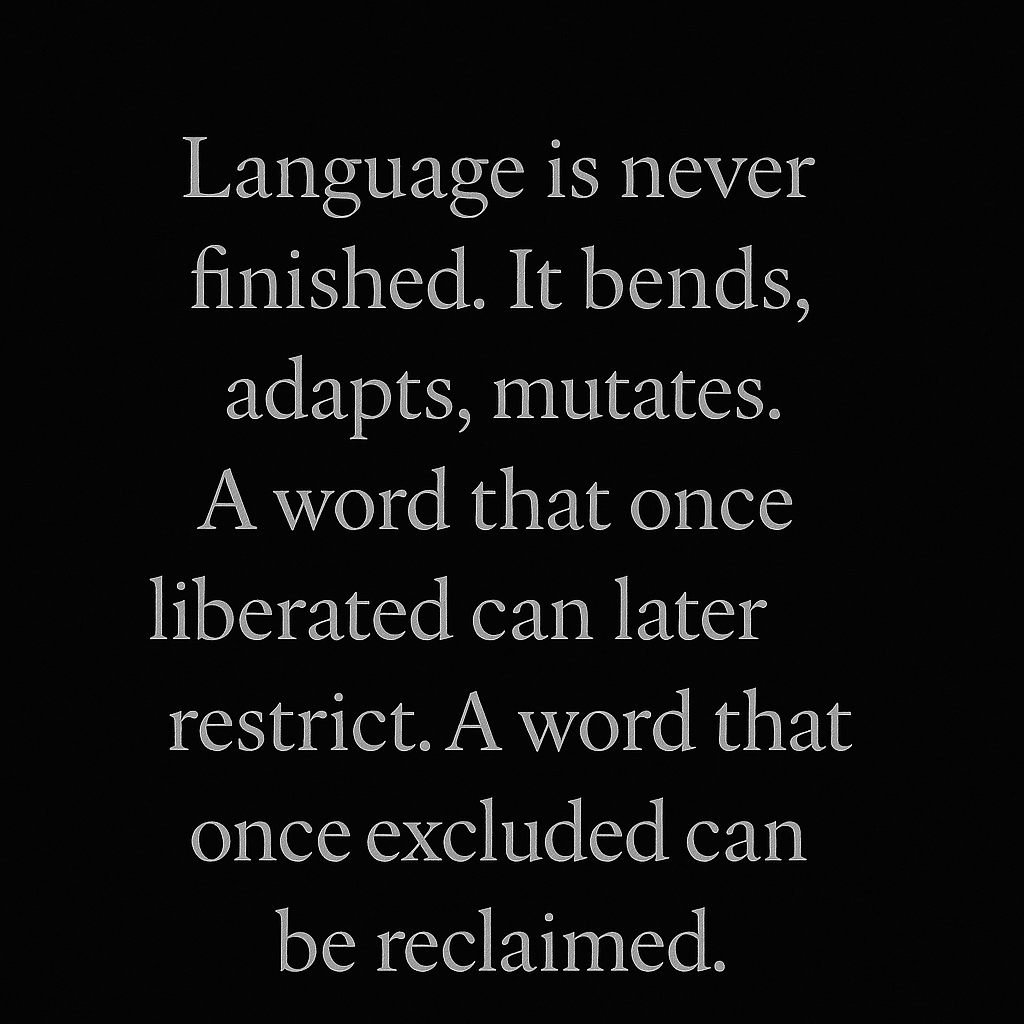Words matter. But not in the way we often think.
We treat words as if they’re reality itself—tiny containers of truth or poison, weapons or salves. But at their core, words are not reality. They are symbols. Signs pointing toward a shared understanding, created by collaborative agreement.
That agreement is fragile. It’s full of flaws.
Words Aren’t Real Things
A chair doesn’t stop being a chair if you call it a “seat” or a “stool.” The wood and fabric don’t disappear because you misnamed it. The physical world exists independently of the words we assign to it.
This is the paradox: words can move us, yet they are ultimately just placeholders.
We forget that too easily. We obsess over saying the right word, the cleanest word, the most approved word, as though meaning is fixed forever. It isn’t.
The Myth of the “Truer” Word
When words fail us—as they inevitably do—the temptation is to invent a better word, a “truer” word. But the truth isn’t in the word. The truth lives in the conversation.
Language is never finished. It bends, adapts, mutates. A word that once liberated can later restrict. A word that once excluded can be reclaimed.
What matters is not the word itself, but whether we’re willing to use it as a tool for better understanding, not as a prison.
Discussion Over Definition
The real work is in discussion. In asking, What did you mean by that? How did that land for you?
That kind of dialogue takes us beyond the word itself. It reminds us that communication is a living process, not a static list. The goal isn’t to pick the “perfect” term, but to understand together.
The opposite—shutting down because the wrong word was used—misses the point. It pretends that meaning is singular, universal, unchangeable. It isn’t. It never has been.
Words Can Liberate or Tear Down
Of course, words can wound. They can also heal. But they do so because of the meaning we assign them, not because of anything inherently inside the letters.
A word becomes a slur when we agree it is. A word becomes inclusive when we agree it is. Meanings shift across time, across cultures, across communities.
That’s both the power and the problem.
Say More, Not Less
The solution isn’t to pare language down to a sanitized list of “approved” words. That makes language brittle, fragile, always at risk of snapping.
The solution is to say more. To invite more words, not fewer. To lean into variety, flexibility, and the richness of expression.
Instead of fearing missteps, we can cultivate curiosity. Instead of correcting, we can clarify. Instead of enforcing, we can explore.
Inclusive Language Is Living Language
Inclusion isn’t about the “right” word—it’s about a willingness to stay in the conversation. To keep talking, keep adjusting, keep listening.
Words aren’t sacred objects. They’re tools. Tools that only work when we use them together.
So f*** your dirty words. They’re not dirty. They’re not pure. They’re just words.
What matters is whether we use them to build walls—or to build bridges.


